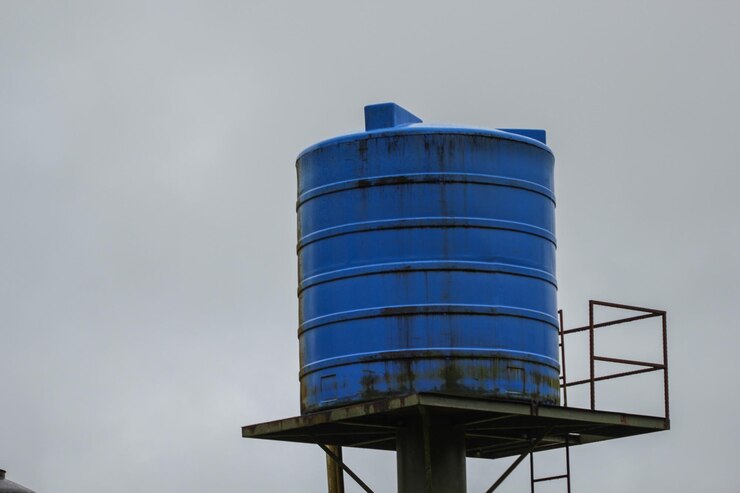
In the world of storage tanks, one crucial aspect that often goes overlooked is the importance of tank liners. Tank liners play a significant role in preserving and maintaining the integrity of storage tanks, protecting them from corrosion and other damages that could arise from stored materials or environmental factors. By providing a barrier between the tank and its contents, tank liners can extend the lifespan of storage tanks, ensure the quality of stored products, and mitigate the risk of leaks and spills. This, in turn, can significantly reduce the costs associated with tank repairs, replacements, and potential environmental penalties.
In this comprehensive guide, we will delve into the world of tank liners, exploring their importance in storage solutions and discussing the various types of liners available in the market, each with its distinct advantages and applications. We will provide insights into the selection process for choosing the right tank liner based on your unique storage requirements, ensuring optimal performance and longevity for your storage tanks.
Potential Environmental Impacts of ASTs
Above Ground Storage Tanks have the potential to cause significant environmental damage if not adequately maintained and monitored. The primary cause for concern is the leakage of hazardous substances from the tanks, which can contaminate the soil and groundwater, negatively impacting local ecosystems and drinking water supplies. Additionally, spills and tank failures can release large volumes of pollutants into the air, contributing to poor air quality and exacerbating climate change.
To prevent such environmental catastrophes, businesses operating ASTs must adhere to strict regulations and industry best practices, as well as collaborate with experienced service providers to develop and implement effective maintenance and inspection programs.
Safety Hazards and Public Health Concerns
ASTs not only pose environmental threats but also present safety hazards and potential health risks for people working at or living near storage facilities. Leaks and spills can expose workers to harmful chemicals, increasing the likelihood of accidents and long-term health issues. Moreover, communities residing in close proximity to storage tanks may face increased risks of contamination, pollution, and heightened exposure to toxic substances.
Apart from regulatory compliance, businesses operating ASTs have a moral and ethical responsibility to ensure that their storage facilities are safe, secure, and present minimal risks to workers and nearby communities. Working with a trusted partner can help businesses maintain the highest safety standards and reduce the possibility of accidents, leaks, and tank failures.
Regulatory Compliance and Best Practices
In Australia, businesses operating ASTs must comply with various federal, state, and local regulations that outline the minimum requirements for the design, installation, operation, and maintenance of storage tanks. These regulations aim to minimise the risks associated with ASTs and ensure that environmental and safety concerns are adequately addressed. Some of the key regulatory requirements and best practices include:
1. Proper Tank Design and Installation: Selecting the right materials, designing the tank according to industry standards, and implementing adequate secondary containment systems can significantly reduce the risks associated with ASTs.
2. Regular Inspections and Maintenance: Conducting routine inspections, identifying potential issues, and addressing them promptly is crucial to preventing leaks, spills, and tank failures.
3. Spill Prevention and Response: Implementing comprehensive spill prevention and response plans can help businesses mitigate the impacts of accidents and ensure that they are well-prepared to respond to emergencies effectively.
4. Employee Training and Awareness: Businesses must train their employees on AST safety, maintenance, and emergency response procedures to ensure they are well-equipped to operate storage facilities safely and responsibly.
ATM Tanks – Your Partner in AST Safety and Environmental Protection
We are a leading provider of tank design, installation, repairs, and maintenance services for above-ground tanks across Australia and the Pacific. With years of experience and expertise in the field, we can help businesses ensure that their AST facilities operate in compliance with regulatory requirements and maintain the highest environmental and safety standards. By partnering with us, businesses can benefit from the following:
1. Expert Consultation: We can help you assess your AST designs, installations, and safety measures to ensure they meet the required standards and minimise environmental and safety risks.
2. Comprehensive Inspection and Maintenance Programs: We provide thorough inspection, maintenance, and repair services for ASTs, helping businesses proactively identify and resolve potential issues before they escalate into costly incidents.
3. Customised Training Solutions: With a deep understanding of AST regulations and best practices, we can develop tailored training programs to help businesses educate their employees on proper storage tank operation, maintenance, and emergency response procedures.
4. Long-Term Support and Partnership: We are committed to supporting businesses in their efforts to ensure the highest levels of safety and environmental protection throughout the lifespan of their AST facilities.
Conclusion
Operating above-ground storage tanks necessitates careful consideration of the associated environmental and safety concerns, as well as strict compliance with regulatory requirements and industry best practices. By partnering with ATM Tanks, businesses can access the expertise, services, and support they need to maintain safe, secure, and environmentally responsible tank liners and storage facilities. In doing so, they not only adhere to legal obligations but also demonstrate a commitment to protecting their employees, local communities, and the environment, which is essential in today’s environmentally-conscious world.
- How Tank Inspections Can Prevent Emergency Cleanups - January 11, 2026
- Tank Waterproofing Tips for Mid-Summer Rain Surges - January 11, 2026
- When to Repair a Cracked Steel Tank Before It Leaks - January 11, 2026






